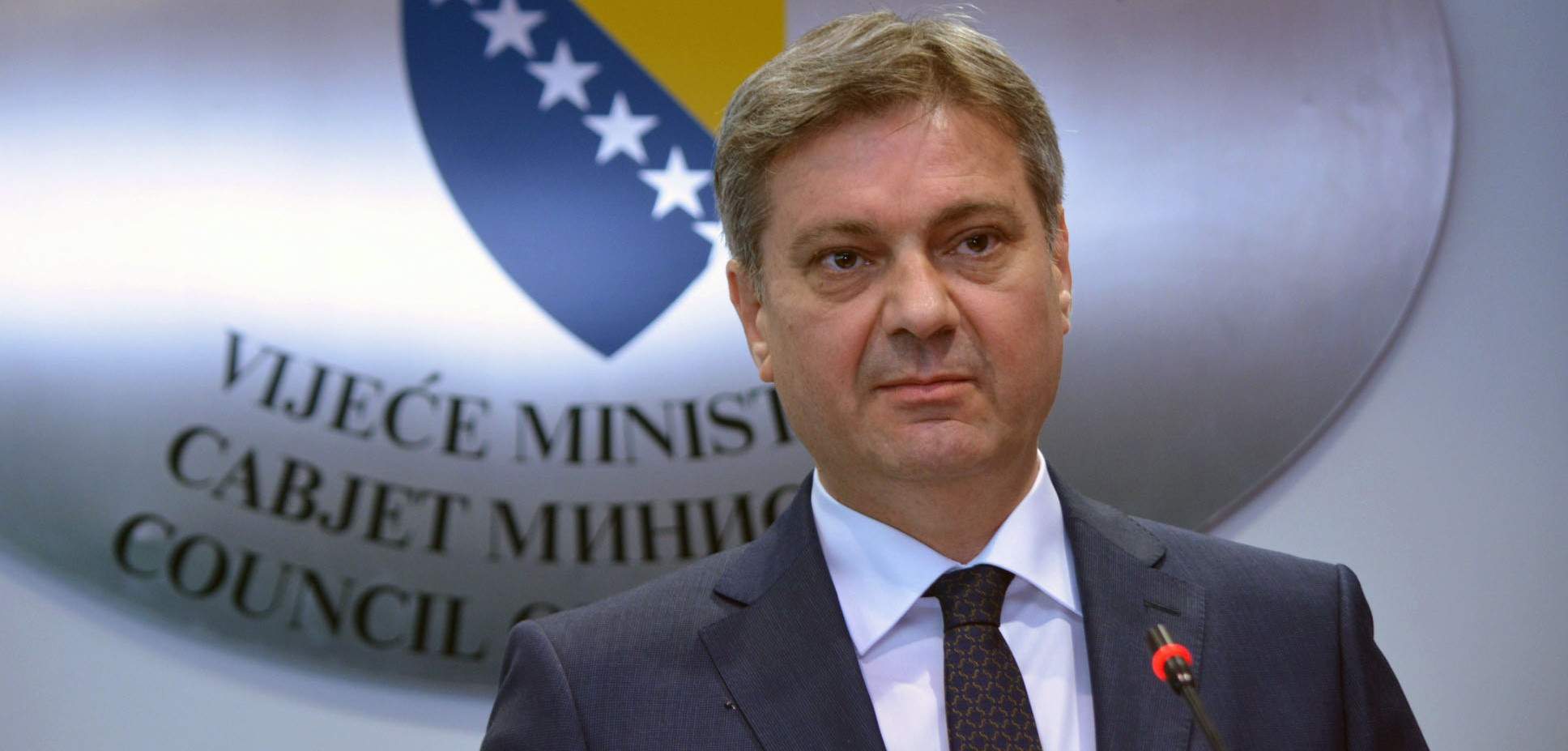Delegations of the Party of Democratic Action (SDA) and the Croat Democratic Union (HDZ) B&H today discussed Bosnia and Herzegovina's European path and meeting 14 priorities from the European Commission's Opinion, that are required to obtain candidate status for membership in the European Union.
Deputy Speaker of the House of Representatives of the B&H Parliamentary Assembly and SDA Vice President Denis Zvizdić said that the meeting was constructive and that it expressed commitment to European integration and work on priorities that he believes need to be met in order for B&H to show serious credibility in its application for EU membership.
He points out that he would not set a date when the eagerly awaited candidate status for membership could be obtained, but his position is that as many positive steps as possible should be taken along that path and that as many laws as possible should be adopted in order to achieve the status.
He confirmed that some of them have been implemented, and for some there is agreement, and that the law on public procurement and the law on conflict of interest should be adopted in the parliamentary procedure by the end of May, which will be in line with European practices, but also to start judicial reform.
-The Law on the High Judicial and Prosecutorial Council (HJPC) and the Rulebook on the Integrity of Judges and Prosecutors would be important issues- Zvizdić added.
He announced that they would continue working on other recommendations, such as a ban on hate speech and the fight against torture and violence against women, but added that the meeting was the beginning of finalizing the phase needed for B&H to obtain candidate status.
He also says that the participation of the Alliance of Independent Social Democrats (SNSD) and representatives of other parliamentary political parties is expected, because, Zvizdić notes, European integration along with NATO integration is a key foreign policy priority to which B&H should remain committed.
He also commented on the work of the B&H Council of Ministers, assessing that the executive body does not send a sufficient number of laws to the parliamentary procedure, noting that this would be a better practice because then the laws would have a better chance of being adopted in the parliamentary procedure and expressed hope that this would not be the case this year when as many laws as possible should be adopted.
